Talks On Psychoanalysis
Freud
Episodes
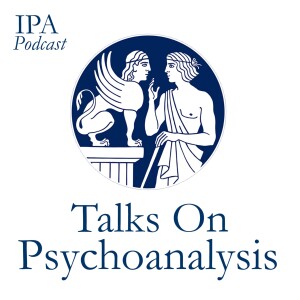
Tuesday Jun 25, 2024
Tuesday Jun 25, 2024
What is it that is so captivating about travel? In Freud’s travel letters chronicling his experiences over many decades in different countries, there are the seeds of the advance of non-clinical experiences of psychoanalysis. Travel takes us to another place with unfamiliar surroundings so that we might see anew that which we may otherwise take for granted. Awe and beauty are often experiences we have while abroad. And these are described by Freud over and over again in these captivating letters.
In this podcast episode, Dr. Patricia O’Donnell discusses Freud’s travel letters and his musings on the pleasures of travel, art, and architecture, as experiences that inspire awe and transcendence. She links these experiences to the unconscious fantasizing that stems from curiosity, rooted in infantile sexuality and that gives rise to the desire to know and triggers of experiences of passion.
Dr. Patricia O’Donnell is a psychiatrist, a full member and training analyst of the Argentine Psychoanalytic Association and a member of the International Psychoanalytic Association. She is also an Associate Professor at the Department of Mental Health at the Hospital de Clinicas Jose de San Martin. She has presented papers at national and international conferences and delivered workshops and lectures on psychoanalytic art research. She has written numerous articles and co-authored books on topics ranging from psychoanalysis and creativity, art and literature.
A subtitled version of this podcast is available on our YouTube channel:https://youtube.com/playlist?list=PLhxiwE76e0QaOquX3GujdwNLFsgxUQNXz&si=yf381EDu3pess6Yz
You can download a copy of the paper here: https://docs.google.com/document/d/1-dthE_sMLxYjtDl4uWWTuEdYD4THtjSN/edit?usp=share_link&ouid=100400904585889441765&rtpof=true&sd=true
This Podcast Series, published by the International Psychoanalytical Association, is part of the activities of the IPA Communication Committee and is produced by the IPA Podcast Editorial Team. Co-Editors: Gaetano Pellegrini and Nicolle Zapien. Editing and Post-Production: Massimiliano Guerrieri.
To stay informed about the latest podcast releases, please sign up today.
This episode has also been published in Spanish.
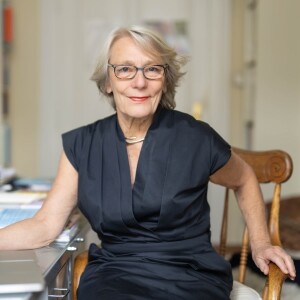
Thursday Dec 14, 2023
Thursday Dec 14, 2023
The place of sexuality in psychoanalytic treatment and training today: Can we observe a disappearance of sexuality in case reports and supervisions?
How does the evolving discourse on sexuality influence psychoanalytic practice and training? In an era where sexual dysphoria is seemingly on the rise, particularly among younger generations, questions arise about the current positioning of Freud's drive theory and the status of sexual issues in psychoanalytic education. Are we witnessing a shift where sexuality loses its central place within psychoanalytic thought?
In this episode of the IPA Talks On Psychoanalysis podcast series, we explore these questions through a comprehensive discussion. The focus is on the potential diminution of sexual themes in psychoanalytic case reports, as observed in recent years, and its implications for psychoanalytic methodology. The discourse originated in the 2021 supervisors' and training analysts' conference of the German Psychoanalytical Association (DPV) in Cologne, Germany and quickly spread to other places, reflecting global concerns about the reduced emphasis on sexuality in candidates' reports for qualification.
This exploration revisits some cornerstones of Freud's seminal theories but also examines the more modern theories and psychoanalytic techniques that emphasize transference-countertransference dynamics for the understanding of sexual fantasies and identities. The role of societal changes, shifts in sexual identity, and the impact of media on sexual behaviour and expression are critically analyzed.
The paper featured in this episode has been previously presented at various events, including a SPP Webinar and the 53rd IPA Congress in Cartagena. It has been translated and published in several psychoanalytic Journals. The IPA Talks On Psychoanalysis podcast series now offers it to its listeners in German, English, Spanish and Italian.
You can access the recent edition of the APA's Journal of Psychoanalysis, featuring a publication with two accompanying commentaries by Alicia Killner and Beatriz Zelcer, at this link: https://revista-de-psicoanalisis.apa.org.ar
Rotraut De Clerck is a renowned psychoanalyst of the German Psychoanalytical Association (DPV) and has been a long-term guest to the British Psychoanalytic Society (BPS). Her work notably intersects psychoanalysis with culture and public discourse. She has carried out the “Psychoanalysis in Literature – Literature in Psychoanalysis” series at the Literaturhaus Frankfurt, fostering dialogue between contemporary writers and Freud's texts. De Clerck's clinical interests include theories on the dynamic interplay of narcissism and object love, of the unconscious and changes in sexuality, including homosexuality “neo-sexualities” and the concepts of masochism. De Clerck's contributions extend to psychoanalytic portraits of literary figures like Albert Camus, Virginia Woolf, painters like Maria Lassnig and notably Lucian Freud. She chairs the EPF's “Psychoanalysis and Literature group and serves as a Consultant on the IPA Culture Committee. Her recent projects focus on the place of sexuality in psychoanalytic theory and practice today.
Link to the paper https://docs.google.com/document/d/1jwtEt3rBf0BSGsl_uFxv6xwVrPPr_dvR/edit?usp=drive_link&ouid=112457875385152358388&rtpof=true&sd=true
This episode is available also in:
German
Spanish
Italian
A subtitled version of this podcast is available on our YouTube channel:https://youtube.com/playlist?list=PLhxiwE76e0QaOquX3GujdwNLFsgxUQNXz&si=yf381EDu3pess6Yz
This Podcast Series, published by the International Psychoanalytical Association, is part of the activities of the IPA Communication Committee and is produced by the IPA Podcast Editorial Team.
Head of the Podcast Editorial Team: Gaetano Pellegrini.Editing and Post-Production: Massimiliano Guerrieri.
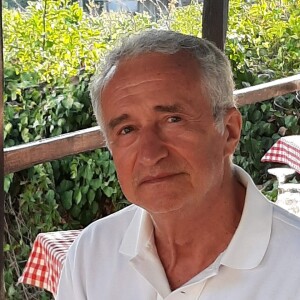
Monday Jun 12, 2023
Monday Jun 12, 2023
How can we think about the Oedipus complex today in a contemporary society beset by a crisis of ideals and the emergence of new forms of sexuality? Neurosis has not disappeared, but borderline states have become a prevalent adaptive mode in a world lacking solid authority figures and sinking into symbolic misery.
In this episode, François Richard is proposing his concept of the distorted Oedipus complex. Beginning with theoretical conceptions of Freud and then of his successors, he is suggesting that a specific form of the infantile oedipus complex persisting in adolescents and adults, give us a better understanding of borderline patients.
François Richard is a psychoanalyst and a member of the Paris Psychoanalytical Society. He is a psychoanalyst in private practice in Paris and has worked for many years in various medical and psychological institutions. As a clinical psychologist, he has also studied social sciences, which broadens his reflection on the impact of social factors on individual psychology. Professor of psychopathology at the Université Paris Cité, he has directed numerous theses and colloquiums, and at one time edited the journal Adolescence. He is the author of several books that have been subject of debates, including Le Processus de subjectivation à l'adolescence (2001), L'actuel malaise dans la culture (2011) and Le Surmoi perverti. His current research focuses on the current crisis of civilisation, the processes of sublimation (particularly in literature), sexual polymorphism, borderline states, and the relationship between frame and countertransference in the face of what he proposes to think of as a structurally deformed Oedipus complex.
Link to the paper https://docs.google.com/document/d/1ju6QxykJe0UK0JBu3QcLdzHZQOveq3HF/edit?usp=share_link&ouid=112457875385152358388&rtpof=true&sd=true
This episode is available also in French
This Podcast Series, published by the International Psychoanalytical Association, is part of the activities of the IPA Communication Committee and is produced by the IPA Podcast Editorial Team. Editor Gaetano Pellegrini.This episode was curated by Julia-Flore Alibert. Introduction written and read by Julia-Flore Alibert.Sound Engineer: Massimiliano Guerrieri.
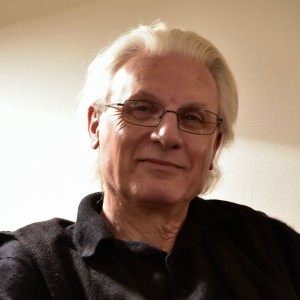
Monday Sep 12, 2022
Monday Sep 12, 2022
The impact of reality on the psychoanalytical treatment and on the work of renunciation of the patient and the analyst.Which realities are involved in the cure?
In this episode Bernard Chervet talks about the impact of reality on psychoanalytic treatment. In light of recent contexts of the global pandemic and upheavals it has caused, Bernard Chervet offers us a theoretical exploration of different notions of reality which confront the analyst. By redefining the terms intrusion, irruption and break-in, and by showing the correlation between internal and external realities, he explains how a traumatic external reality bursting into the treatment re-enacts infantile sexuality from childhood when the difference between the sexes was discovered. He shows us how the analyst, guardian of psychic life, must take all these realities into account in his work with his patients. The analyst must respect and even favour a time of immobilisation and temporary denial linked to a shock without losing sight of resuming the analytical process in a second phase in order to achieve a regeneration of the libido, the very objective of dream work and session work.
Bernard Chervet is a French psychiatrist and psychoanalyst. He lives and works in Paris and Lyon. He is a training psychoanalyst of the Psychoanalytic Society of Paris (SPP), he was a Former President of the SPP. He is a representative on the IPA Board and on the IPA Executive Committee. He is Scientific Director of the Congress of French speaking Psychoanalysts (CPLF), Founder of SPP Editions and he has authored numerous publications in French and international journals. He was the winner of the french Maurice Bouvet Prize in 2018 for his complete works. As the key-note speaker at the CPLF on the theme "Après-coup", he is the author of “Après-coup in Psychoanalysis: The Fulfilment of Desire and Thought” (to be published in 2022 by Routledge). Finally, he is also contributor to the IPA encyclopedic dictionary.
A subtitled version of this podcast is available on our YouTube channel:https://youtube.com/playlist?list=PLhxiwE76e0QaOquX3GujdwNLFsgxUQNXz&si=yf381EDu3pess6Yz
This episode has been produced in collaboration with Julia-Flore Alibert.
This Podcast Series, published by the International Psychoanalytical Association, is part of the activities of the IPA Communication Committee and is produced by the IPA Podcast Editorial Team.
Head of the Podcast Editorial Team: Gaetano Pellegrini.Editing and Post-Production: Massimiliano Guerrieri.
Link to the paper https://docs.google.com/document/d/1ixWEPk_P7UaIBlGDwM2OtHEM-MzTSZ5l/edit?usp=sharing&ouid=112457875385152358388&rtpof=true&sd=true
This episode is available also in French
References:
Chervet, B. (2022) The Case of J: Returning to the Office. International Journal of Psychoanalysis 103:518-523
Chervet, B. (2021) The Traumatic and the Work of the Après-Coup in Freud’s Opus. International Journal of Psychoanalysis 102:765-777
Chervet, B. (2020) The case of J: Working as a psychoanalyst during the Pandemic. International Journal of Psychoanalysis 101:784-790
Chervet, B. (2013) André Green 1927-2012: An Artisan of the Future. International Journal of Psychoanalysis 94:157-166
Chervet, B. (2010) La tentation psychotique [The Psychotic Temptation] by Liliane Abensour Presses Universitaires de France, Paris, 2008; 206 pp.. International Journal of Psychoanalysis 91:448-454
Bernard Chervet: Eros idealized and the life drive de-idealized. Session work and the reference to an ideal psychic functioningPre published papers 2022 — 6 juil. 2022Bernard Chervet: Which Reality Testing for Psychoanalysis in the Post-Truth Era? From Kettle Logic to the Witch Trial— 1 Dec. 2021Bernard Chervet: The Après-Coup: Form and Formlessness in Dream-Work and Unconscious Formations. The Formal Regression to Formlessness and the Manufacturer of Forms - from Bulletin 67, 2013— 5 Nov. 2020Bernard Chervet: Sensual Regression and Emergence of Erotogenicity Following Sensual Regression Within SessionsBulletin 73, 2019 — 19 Nov. 2019Bernard Chervet: The paths (x) of authority or How can psychoanalysts lack judgement ? 13 Feb. 2016Bernard Chervet: Too Much … Too Little … Two Reminiscences of the Traumatic Dimension in Psychoanalytic SessionsBulletin 69, 2015 (Page 125-137) — 1 Aug. 2015Bernard Chervet: The Après-Coup: Form and Formlessness in Dream-Work and Unconscious Formations. The Formal Regression to Formlessness and the Manufacturer of FormsPage 79-89 — 1 Oct. 2013Bernard Chervet: Opening Speech, Paris Psychoanalytic SocietyPage 11-12 — 14 Jan. 2013Bernard Chervet: The french model’s three-sessions-a-week treatment frame. Neither too much, nor not enoughEPF ; 25° Annual Conference. March the 28th 2012
Bernard Chervet: Eros idealized and the life drive de-idealized. Session work and the reference to an ideal psychic functioning. 2022 Bernard Chervet: Éros idéalisé et pulsion de vie désidéalisée. Le travail de séance et la référence à un fonctionnement psychique idéal. 2022Psychoanalysis and Covidian life – common distress, individual experience edited in French, English and Portuguese by H. B. Levine and A. de Staal, Bicester, Phoenix Publishing House, 2021, 288 pp., ISBN 978-1912691777
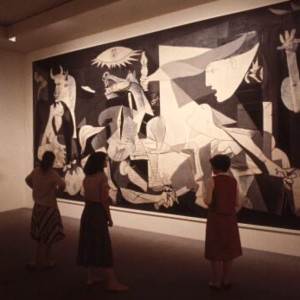
Monday Apr 04, 2022
Monday Apr 04, 2022
"Guernica" by Picasso at MOMA, NYC. Gotfryd, Bernard, photographer. Courtesy Library of Congress.
What happens when our basic trust in the world is challenged, and the social dimension of reality is disrupted as a consequence of collective trauma?In this episode, Werner Bohleber addresses the theme of traumatic experiences and does so starting from the two main models around which psychoanalytic thought has sought to understand trauma: the freudian psycho-economic model and the object-relational model.Reflecting on what he so effectively defines as "the symbolic web that carries us", Bohleber considers the implications of man-made disasters, and those that befall our individual and collective memory.
Werner Bohleber, Dr. phil, is a psychoanalyst in private practice in Frankfurt am Main. He is training analyst and former President of the German Psychoanalytical Association. He has long served on committees of the IPA, the last from 2009-2013 as Chair of the IPA Committee on Conceptual Integration. From 1997 to 2017 he was main editor of the journal PSYCHE. His research subjects and main publication themes are: late adolescence and young adulthood; psychoanalytic theory; transgenerational consequences of the Nazi period and the war on the second and third generation; nationalism, terrorism, anti-Semitism; trauma research. In 2007, he was awarded the Mary S. Sigourney Award for his diverse contributions, especially those relating to the traumatic aftermath of the Holocaust, National Socialism, and World War II.
link to the paper https://docs.google.com/document/d/18yMyiZ6darmN6ouxVoQmUwlci44UCnCQ/edit?usp=sharing&ouid=112457875385152358388&rtpof=true&sd=true
this episode is available also in German
Bibliography
Allen, J. (2013). Mentalizing in the development and treatment of attachment trauma. London: Karnac.
Amery J. (1996): Die Tortur. Merkur, 50, 502-515.
Balint M (1969). Trauma and object relationship. Int. J. Psycho-Anal. 50: 429-36.
Baranger M, Baranger W, Mom JM (1988). The infantile psychic trauma from us to Freud: Pure trauma, retroactivity and reconstruction. Int. J. Psycho-Anal. 69: 113-28.
Bohleber, W (2010). Destructiveness, Intersubjectivity, and Trauma. The Identity Crisis of Modern Psychoanalysis. London: Karnac.
Cooper, A. (1986), Toward a limited definition of psychic trauma. In: The Reconstruction of Trauma. Its Significance in Clinical Work, ed. A. Rothstein. Madison, CT: International Universities Press, pp. 41-56.
Erikson E.H. (1968): Identity. Youth and crisis. Nem York: Norton.
Ferenczi S (1949). Confusion of the tongues between the adults and the child [1933]. Int. J. Psycho-Anal. 30: 225-30.
Freud S (1920). Beyond the pleasure principle. Standard Edition 18, p. 7-64
Freud S (1926). Inhibitions, symptoms and anxiety. Standard Edition 20, p. 77-174.
Freud S. (1939). Moses and Monotheistism. SE 23: 1-138. (GW 16: 103–246)
Garland, C. (1998). Thinking about trauma. In: Garland, C. (Hg.). Understanding trauma. A psychoanalytic approach. London (Karnac).
Krystal, H. (1988). Integration and Self-Healing. Affect, Trauma, Alexithymia. Hillsdale: Analytic Press.
Langer L.L. (1995): Memory’s time: Chronology and duration in Holocaust testimonies. In: Langer, L.L.: Admitting the Holocaust: Collected essays. New York/Oxford: John Hopkins University Press, pp.13-23.
Leys R. (2000). Trauma: A genealogy. Chicago, Ill.: University of Chicago Press.
Morris D. J. (2015): The evil hours. A biography of post-traumatic stress disorder. Boston/New York: Houghton Mifflin Harcourt.
Oliner M. (2012): Psychic reality in context. Perspectives on psychoanalysis, personal history, and trauma. London: Karnac
Shalev A.Y. (1996), Stress Versus Traumatic stress. From Acute Homeostatic Reactions to Chronic Psychopathology. In: Traumatic Stress. The Effects of Overwhelming Experience on Mind, Body and Society, ed. B. van der Kolk, A., Mc Farlane & L.Weisaeth. New York NY: Guilford Press, pp. 77-101.
Steele BF (1994). Psychoanalysis and the maltreatment of children. J. Amer. Psychoanal. Assn. 42: 1001-25.
Van der Kolk B. (1996). Trauma and memory. In: B. van der Kolk, B., A. McFarlane & L. Weisath (Eds.) Traumatic stress. The effects of overwhelming experience on mind, body and society. New York: Guilford Press, pp. 279-302.
van der Kolk B. (2014): The body keeps the score. Mind, brain, and the body in the healing of trauma London: Penguin Books.
CREDITSEditing: Agustín Ruiz Brussain
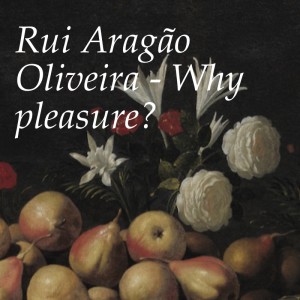
Sunday Feb 13, 2022
Sunday Feb 13, 2022
Flowers and Fruit in a Chinese Bowl, c. 1645, Juan de Zurbarán. Courtesy Art Institute Chicago.
What role does Pleasure occupy in human development? What influence did this theme have on the development of Freud's Psychoanalytic theory? What do we think in contemporaneity about the function of pleasure in the psyche?
In this episode we have the pleasure of listening to Dr. Rui Aragão Oliveira with his article “Why pleasure?”. Dr. Rui provides an overview of the relevance of the topic for the very emergence of Psychoanalysis, addresses the role of pleasure in the dynamic-economic balance of the psyche and its development, discusses the relationship between people and pleasure in our current society and, finally, points out aspects of pleasure in the clinical work of the analyst.
Dr. Rui Aragão Oliveira is a full member and training analyst of the Portuguese Psychoanalytic Society, the SPP, Phd in Clinical Psychology. He is the Chair of the SPP Teaching Committee and Past President of the SPP.
He was editor-in-chief of the Revista Psicanalítica Portuguesa and also editor by the IPA of the international publication Psychoanalysis.Today.
Link to the paper https://docs.google.com/document/d/1-LWo16_Lapji9PCqGOJ8d-AMztwT7twB/edit?usp=sharing&ouid=112457875385152358388&rtpof=true&sd=true
This episode is available also in Portuguese
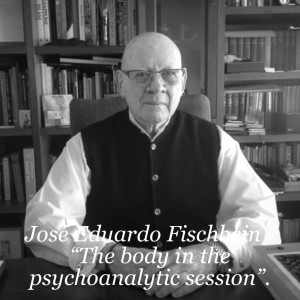
Monday Nov 01, 2021
Monday Nov 01, 2021
This paper aims at categorizing two types of discourse with which the body is referred to. It is based on the model of psychic apparatus as presented in Chapter VII of The Interpretation of Dreams, using it as a conceptual instrument for reading the clinical material in the session. These are the discourse of the "evoked body" and the one on the "perceived body". The former historicizes memories and bodily experiences, while the latter alludes almost exclusively to the present of perception and the recording of what has been done.
The discourse of the evoked body corresponds to the field of defensive formations—the expression of a conflictive situation for the mind—, in which different types of acting psychic defences can be distinguished. It is a discourse on the body constructed by representations of the oedipal linking framework. The discourse of the perceived body conveys a body that focuses on references to the perception of economic excitatory aspects; it is rich in its allusions to sensations and experiences that have their axis in bodily functions. It talks about the perception of well-being vs. discomfort, pain vs. absence thereof, increasing tension or discharge processes.
Dr. José Eduardo Fischbein
MD from the University of Buenos Aires, graduated with Honours Diploma.
Specialist in Psychiatry, National Ministry of Health.
Full Member and Training Analyst of the Argentine Psychoanalytic Association (APA), Latin American Federation of Psychoanalysis (FEPAL), International Psychoanalytic Association (IPA).
Specialized in Child and Adolescent Psychoanalysis, APA, FEPAL, IPA.
Master in Psychoanalysis, National University of La Matanza [UNLAM]
Elected Director of the Department of Psychosomatics of APA in several administrations, most recently from 2012 to 2016.
APA Vice President, 2018-2020
Chair of the Research Group "The body in the psychoanalytic session" (2010 - 2020)
He has published numerous articles (approx. 65) in Argentine and foreign reviewed journals (Int. J. Psychol., Revista de Psicoanálisis, APA; Psicoanálisis, APdeBA), as well as chapters in several books.
Link to the paper https://docs.google.com/document/d/1--skeUZx8K4J_T12BhbU5LG-FhALv8N1/edit?usp=sharing&ouid=112457875385152358388&rtpof=true&sd=true
This episode is available also in Spanish
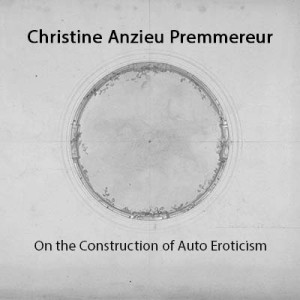
Thursday Aug 26, 2021
Thursday Aug 26, 2021
In this episode we’ll listen to Christine Anzieu-Premmereur on the construction of auto-eroticism and the ability to fantasize-dream at the dawn of life.
Christine Anzieu-Premmereur is a PhD Psychologist trained in Paris, an Adult and Child Psychiatrist and Psychoanalyst, member of the Société Psychanalytique de Paris. She moved from Paris to New York in the year 2000 where she has her private practice.
She is a faculty teacher at the Columbia Psychoanalytic Center for Training and Research where she is the director of the Parent-Infant Psychotherapy Training Program, and Assistant Clinical Professor in Psychiatry at Columbia University.
She is the chair of the IPA Committee for Child and Adolescent Psychoanalysis and a member of the New York Psychoanalytic Institute. She chairs the discussion group on Parent-Infant Programs at Psychoanalytic Institutes at the American Psychoanalytic Association meetings.
She has published several articles and chapters on her work as a psychoanalyst of adults, children, and infants with their parents, including recently "A Psychoanalytic Exploration of the Body in Today's Psychoanalysis" published by Routledge, and has collaborated with Dunod on "Le jeu en psychanalyse d'enfants" (Playing in child psychoanalysis) and "Pratiques psychanalytiques avec les bébés" (Psychoanalytic practices with babies).
link to the paper: https://drive.google.com/file/d/1UDFE2VmMO8nhSSliHL5WzPSgKXNYFit1/view?usp=sharing
this episode is available also in French
A Circular ceiling design with clouds and roses, second half 19th century. Jules-Edmond-Charles Lachaise. Courtesy Met Museum, New York.
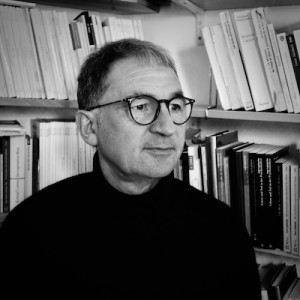
Thursday Nov 26, 2020
Thursday Nov 26, 2020
In this episode Udo Hock will present his paper on the notion of “distortion” in psychoanalysis. He has been working for many years on this notion that has been neglected by post-Freudian authors: the “Distortion” or “Disfigurement”, “Entstellung” in German. In his podcast he will show that the term has the status of a fundamental concept in Freud's work. It characterizes the method, the metapsychological concepts as well as the technique of psychoanalysis which is in the tradition of Freud. It is a guideline not only for our clinical work, but also for our thinking on the Unconscious.
After studies in Berlin and Paris, Udo Hock worked as a psychoanalyst in private practice in Berlin. He is member of the Publications Committee of the IPA; member of the Scientific Committee of the Foundation "Jean Laplanche“ in Paris; translator and editor of the work of Jean Laplanche into German; coeditor of the German psychoanalytical journal “Psyche” and lecturer at the International Psychoanalytical University of Berlin. He has written many articles about the classical themes of psychoanalysis, as the concepts of “Drive”, “Time”, “Infantile Sexuality”, “Transference”, “Repetition”, “Cover Memory”- and on the work of Jean Laplanche. He is the author of the book “Thinking the Unconscious: Repetition and Death Drive“ published in German in 2012.
Link to the paper https://drive.google.com/file/d/1RONNz2lFwWuKvzyVS0AIL5ntF4bxEfTW/view?usp=sharing
This episode is available also in German and French
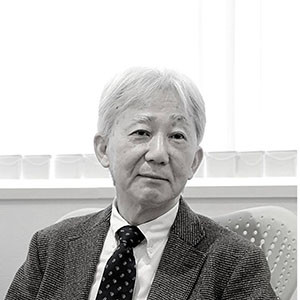
Monday Jul 20, 2020
Monday Jul 20, 2020
In this episode we explore the core psychoanalytic method and the differences between psychoanalysis and psychoanalytic psychotherapy.
Our presenter Dr Kunihiro Matsuki presents two methods relating to perceiving a patient’s unconscious, one linked to the idea of ‘evenly suspended attention’, the other in relation to “free-floating attention’.
Dr Kunihiro Matsuki is President of The Japanese Psychoanalytic Society, Member of the IPA Asia-Pacific Planning Committee and Chair of the IPA Asia-Pacific Sydney 2020 Conference Committee. He is the author of 12 monographs, many psychoanalytic papers and is responsible for the Japanese translations of fundamental authors like Bion and Meltzer. In 2016 he also won The Japanese Psychoanalytical Association’s Distinguished Publications Award.
Introduction recorded by Andy Cohen Etude Op. 25 no. 4 in A minor - 'Paganini' comes from https://musopen.org
This episode is available also in Japanese